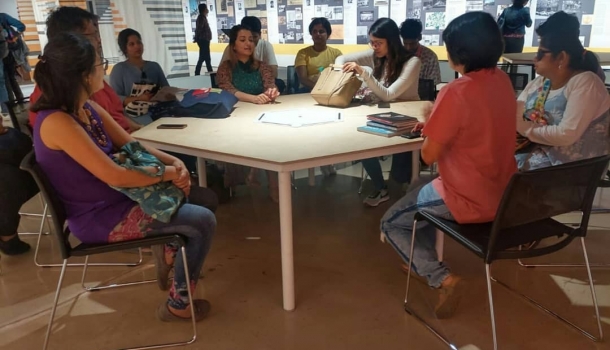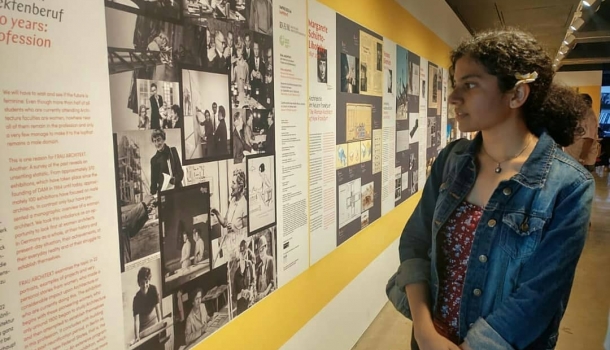What’s Cooking at CultureCon?
Samprati Lavana
11 February 2020


We, here at Godrej India Culture Lab, love to experiment with culture. One such experiment was CultureCon 2020, the inaugural edition of a creative industry and arts management conference that sought to initiate conversations around the cultural sector in modern India.
But what do we mean when we say “cultural sector”? In true spirit of the Culture Lab, let’s explore culture as one would in a chemical laboratory!
So, the relationship between culture and commerce, looked at through the lens of its organization structure, people, and money, can synthesize to form ways ways of creating a thriving space viz. the culture industry of India.
One way to understand this is the India Culture Lab itself! When a corporate giant like Godrej invests resources, the result is a booming cultural ecosystem with its own world of public events, research-oriented white papers, cultural training for young students, and other cultural projects.
Speaking of cultural ecosystems, India’s rich cultural resources could benefit from formal structures which channel them to their optimal potential. The first step toward this would be to initiate dialogue around organizing the culture sector, and CultureCon hopes to do exactly that. Raymond Williams, in his essay Culture and Society, defines culture as “a general body of art”. CultureCon is a novel initiative seeking to nourish this body of art in India. In the same essay, he states that art is an institute in itself.
As such, the culture of and within modern India should also be organized as an independent industry in itself. This can be achieved through optimizing the structures available for cultural expression as well as priming them for global interaction. The possibilities contingent within the same constitute the Organization Question.
Another of Williams’ ideas that the Culture Lab takes to heart is- culture is ordinary. We strongly believe that culture is found in the ordinary people of everyday life. We strongly believe that culture is found in the everyday life of people. So, in the business of culture, people are priority.
It is therefore important to set in place systems offering the makers of culture an improved way of life. Be it arts institutions which help develop their skills, or mechanisms which address the unique labour challenges that their diverse positions amidst a complex network of myriad intersections presents to them, the culture sector must take care of its people. The People Question addresses the human aspect of culture, because there is no culture without community.
Finally, for the culture industry to sustain itself just like all other industries in today’s market, it needs to emerge as a profitable sector. As such, cultural projects evolve into for-profit businesses with the help governmental or corporate funding. These cultural ventures, in turn, can yield tangible and intangible benefits for patrons. In other words, the rewards and risks of investing in culture are explored in the panel on the Money Question.
So, we know that it takes a lot of organization and investment to encourage the continued growth of cultural expressions or traditions. When elements from across the Indian landscape meet in a conscious confluence, the cultural creativity of modern India finds a truly sustainable structure to survive and indeed, thrive, within!
CultureCon itself, is one such cultural project. Intended to henceforth be an annual conference, CultureCon is a compound of the Godrej India Culture Lab (GICL) and Arts Culture Resources India (ACRI), as well as our other brilliant collaborators.

